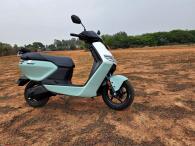News
Why are Japanese Automakers reluctant to switch to EVs?
In my opinion the apprehension of these brands are somewhat justified.
BHPian itspatra recently shared this with other enthusiasts.
I just came across a video today by Biturbo Media where he discuses that Japanese Automakers such as Toyota, Honda, Nissan, Mitsubishi and Suzuki are not too keen to switch to BEVs. Toyota being the largest automaker in the world only has one all-electric car named "bZ4X". Honda and Nissan have a couple but Mitsubishi and Suzuki have none.
Toyota also invests heavily in other forms of energy like flex fuel and hydrogen fuel cells.
Some of the data that Toyota puts forward along with the sources


In my opinion the apprehension of these brands are somewhat justified. Electric vehicles should not be shoved down everyone's throat as the only way to drive green with zero tail-pipe emission. I think plug-in hybrids are the best of both worlds and should be considered in the 20-40 year timeframe. In this time hopefully we are able to find more sustainable ways to produce batteries and BEVs. Plug-in Hybrids can be a completely electric vehicle for your daily office commute and city driving. This makes cities noise and tailpipe emissions free. This covers 75% of driving for most people. For long distance trips you can fill up fuel which will offer superior mileage to ICE vehicles. The battery being smaller makes the vehicle lighter and improves charging time significantly.
I wanted to know what other members think of this?
Here's what BHPian DeKay had to say on the matter:
Contrary to popular opinion on this forum, my belief is that Plug-in hybrid EVs are at best, a transitionary solution.
EVs have fewer moving parts than plug-in hybrids, leading to potentially lower maintenance costs and increased reliability over time. PHEVs are heavier, have more software complexity, maintaining them is empirically more expensive. The inherent complexity of blending two power systems within one vehicle creates a system with more potential points of failure. If you think some OEMs make unreliable vehicles today, wait till they start making PHEVs.
Rather, solutions like denser solid state batteries, sodium ion batteries which will eliminate the need for lithium, cobalt, or nickel entirely should be the focus. While sodium ion batteries are inherently less dense than LFP batteries, the speed at which research is moving, breakthroughs are imminent.
Here's what BHPian androdev had to say on the matter:
At the end of the day, it's all about money. If your profits are aligned with EV adoption and you have nothing to lose by abandoning ICE technology, then you make a lot of noise about how perfect EVs are.
OTOH, if your profits are aligned with prolonging the ICE technology, then you come up with very convoluted theories that justify why ICE/Hybrid stuff is better for the environment.
Ironically, EV evangelisation has helped the Hybrid cause immensely. Hybrid gives the psychological comfort that you are doing something about the environment without having to suffer the early adopter inconveniences and unpredictable future of the EVs. All the EV talk has pretty much killed the diesel ICE market - forcing cost conscious buyers to embrace Hybrids. Net result: Hybrid tech has earned environment conscious buyers as well as cost conscious ones. EV market is limited to early adopters and that's getting saturated - the transition/revolution hasn't taken place as expected. EV is still the way to go but everyone is recalibrating the timelines.
In the medium term, Japan stands vindicated - their hybrid tech has become a hot commodity. Given the massive stakes Japan has in ICE technology (not just automobile manufacturers but lot of component suppliers as well), they would be happy to prolong the ICE/Hybrid era. China might be in trouble for taking a super aggressive EV approach - they always overproduce and dump. Europe is playing the balancing act by being a jack of all and hoping their superior branding power will save them.
EV is the future but its adoption seems to be slower than predicted. Companies like Tesla will still thrive but ICE companies will not be feeling existential crisis just yet. It will be interesting to see if newer and more advanced EV technologies (drives and batteries) would put early EV companies at a disadvantage compared to the ICE giants playing the wait-and-watch game.
Here's what BHPian Smartcat had to say on the matter:
I think most Japanese companies follow conservative business practices with focus on profitability & cash flows. This conservativeness extends to product planning or also entering new markets. Startup scene in Japan too is relatively lackluster compared to US/Western Europe/China etc.
There are effectively three types of EV players from business point of view:
1) Companies like Tesla/Rivian that were or backed by huge venture capital or private equity funding. Because of access to capital, these companies can afford to NOT focus on cash flows for many years. This is not prevalent in Japan.
2) Companies like BYD/Nio/Xpeng that are backed by visible & invisible Chinese govt subsidies. This helps them achieve economies of scale & along with that comes lower cost of production. Japanese Govt is not known to bending the rules like that.
3) Companies like Ford/GM/Stellantis/Germans/Koreans etc having a small portfolio of EVs, along with its usual focus on traditional cars. Right now, sales of EVs do not move the revenue or profits needle for these companies. With the kind of business mindset that Japanese companies have, it doesn't make sense to deploy capital on developing EVs right now.
Here's what BHPian svsantosh had to say on the matter:
Because the Japanese know that EV infrastructure is something that will not be created overnight and the Big-Oil will not let EV succeed for the next 50 years at least. Hybrid is the best solution that is acceptable to the oil industry and that itself on paper meanas a 30-40% reduction in oil imports/production. Oil is the biggest & most important Global economic driver and many powers-to-be will not let EV just take center stage and phase out the fossil fuel industry.
Japanese would have done their 6-Sigma and in depth analysis and decided upon the unspoken truth that Oil is here to stay. So the next best alternative to ICE is ICE with a small battery for city use AKA Hybrid.
Here's what BHPian ohak had to say on the matter:
My vote is for hybrids. Hybrids are good stop gap arrangement until we get technology and infrastructure upgraded for EV proliferation and high volume usage. City run about with home charging is a good use case for BEV.
Japanese culture is often characterized by a high respect for seniority and experience. This cultural norm is evident in many Japanese organizations and social structures, where age and tenure can play a significant role in hierarchy and decision-making processes. While it can lead to stability and careful decision-making, it can also potentially hinder innovation and rapid response to market changes. The balance between these aspects is something many Japanese organizations struggle to achieve.
Read BHPian comments for more insights and information.





-min.jpg)











